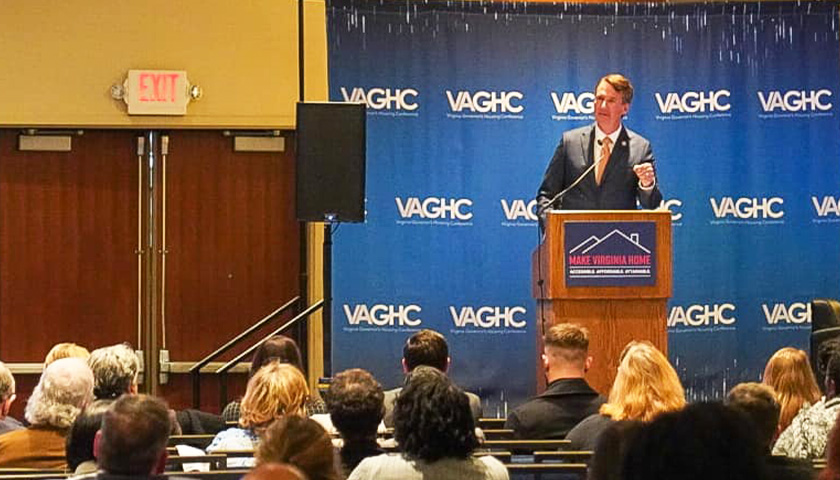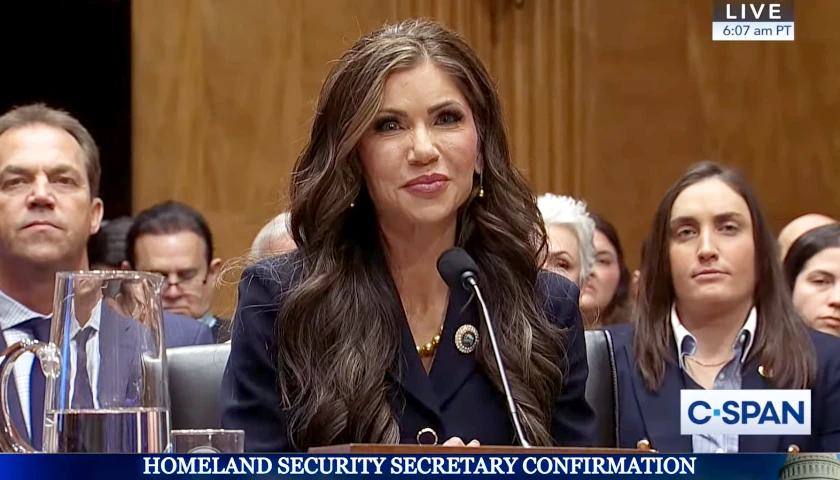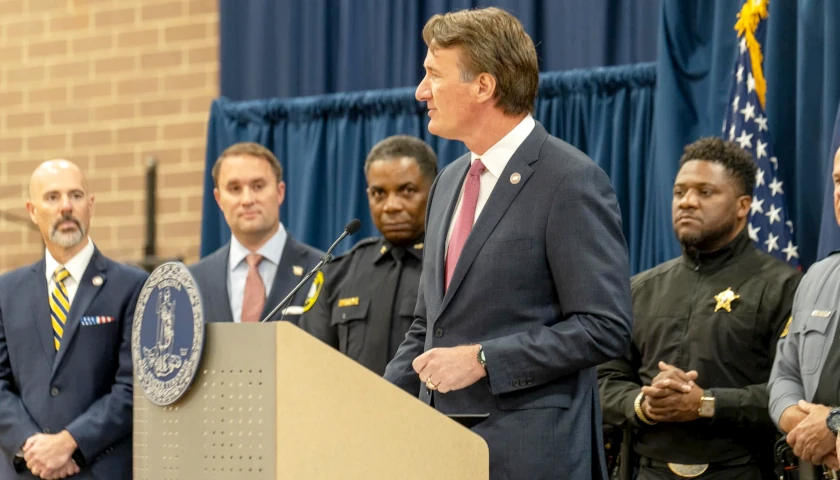Governor Glenn Youngkin announced a plan to address Virginia housing shortages, including encouraging local cooperation on zoning, simplifying regulations, and placing housing at the center of economic development plans. He told attendees at the Governor’s Housing Conference that the plan results from concerns expressed by individual Virginians and roundtable sessions with developers, local leaders, and advocates.
He said, “What we’ve heard from Virginians over and over again is this sense of frustration. They’re tired of searching far and wide for that ‘For Sale’ sign, only to see that it’s out of their reach. They’re deterred by the cost. Virginians are also seriously worried that ongoing inflation and rising interest rates will make the American dream of owning a home not something they can’t have today, but something they may never have.”
“Virginia developers and builders are frustrated with fewer options and restrictions that have resulted in fewer places to develop. We see pressure on the supply of single and multifamily homes as a result,” he said. “Virginians are a bit tired of the bureaucratic overstep that they see all the time as property owners. It’s their property. They want to do with it what they want. These are real challenges.”
Youngkin’s “Make Virginia Home Plan” aims to increase land available for development by pushing local governments to cooperate. The plan calls for linking grant funding to local policy, creating deadlines and consequences for zoning review for localities seeking economic assistance, requiring localities to report on policies and actions related to housing development, and potential reform of land use and zoning laws.
The plan also seeks to streamline the regulatory process by publishing building regulations in Spanish and potentially changing the building code adoption process.
As part of addressing the regulatory barrier, the plan calls for addressing environmental regulations and permitting processes, calling for “a more efficient way for public and private economic development and infrastructure projects to meet mandated wetlands and stream mitigation requirements in a way that does not jeopardize the quality of that mitigation by working to operationalize Virginia’s existing Wetland and Stream Replacement Fund,” according to a Youngkin press release.
Housing development is part of Virginia’s economic development planning, and Youngkin’s housing plan calls for public/private partnerships in site development stages to include workforce housing — housing for people with incomes above qualifying levels for subsidized affordable housing, but below luxury levels.
“During our efforts to attract and retain businesses to Virginia, the availability of workforce housing for their future employees was consistently raised by employers. It’s clear there is a strong connection between economic growth and needs for attainable housing options. This plan will align housing development with economic growth as part of our site development process and we will engage with site selectors earlier in the recruitment process on housing to ensure workforce housing needs are addressed,” Secretary of Commerce and Trade Caren Merrick said in Youngkin’s release
– – –
Eric Burk is a reporter at The Virginia Star and The Star News Network. Email tips to [email protected].
Photo “Glenn Youngkin” by Governor of Virginia.





Sounds like Youngkin has sold out to the developers.
Can you spell grrrrrrrid lock? Think it bad now? Just wait. Not saying it’s unavoidable, just saying don’t be surprised act like you didn’t see this coming. And anyone who thinks or believes that solar power will come anywhere close to meeting energy needs 3-5-10 years from now, even if you can afford it, doesn’t even have one foot firmly planted in ‘reality’ let alone two.
Seen the latest Sharper Image catalog? Practically every item is RECHARGEABLE, as are most products produced these days. Add all that to cars, charging stations, etal., and we’ll have 50 California’s with rolling blackouts.